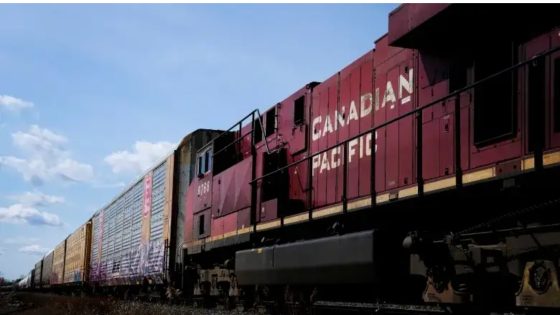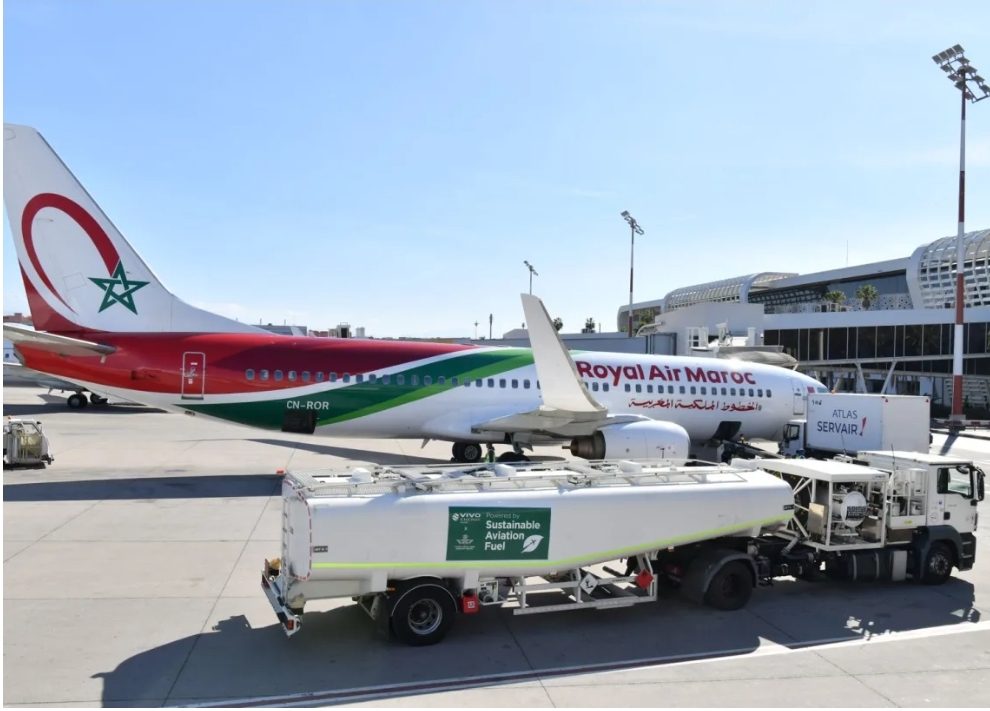Assahafa.com
To business executive Daniel Peretz, the possibility of a railway strike or lockout is more than a headline.
“The rail service is our lifeline,” he said. “Without the rail service, we don’t operate the business, we don’t have 13 employees working here, we’re unable to service a very important industry.”
Peretz is president and CEO of NexGen Polymers, a plastics material transloading facility operating out of a rail-served warehouse and office space just east of downtown London, Ont.
Outside the building’s brick walls, there’s a series of railway sidings that together hold about 40 railcars. Each graffiti-covered rail car holds plastic pellets delivered to the site by petroleum companies from across North America and overseas.
Twice a week, a Canadian Pacific Kansas City (CPKC) crew comes to pull away about 10 empties from NexGen and replace them with loaded railcars.
The plastic pellets — each about the size of an unpopped popcorn kernel — come delivered to Peretz’s site in various colours and grades.
The pellets are vacuumed out of the railcars and into storage tanks for testing, mixing and eventual delivery by truck for customers. The manufacturers Peretz sells to turn the pellets into products and packaging that Canadians see on almost every store shelf.
“Plastic water bottles, the overwrap for toilet paper — really every aspect of every component of what we purchase today is made from plastic, from industrial products, to food, to industrial to medical,” he said.
Dispute creates chain reaction
A labour dispute at both Canadian National and CPKC threatens to derail not only Peretz’s business, but the scores of manufacturers he supplies in a complex, just-in-time supply chain. The Canadian Federation of Independent Business has said the lockout could be devastating for small businesses that depend on rail service.
Railways carry more than $1 billion worth of goods each day, according to the Railway Association of Canada, and over half of the country’s exports travel by rail.
Contract talks between the Teamsters union and the companies usually take place a year apart, but in 2022, after the federal government introduced new rules, CN requested a year-long extension to its existing deal rather than negotiate a new one.
This meant both companies’ labour agreements expired at the end of 2023 and talks have been ongoing since.
The companies and the union have accused each other of bad faith bargaining. The teamsters say CN Rail and CPKC are seeking concessions that could endanger worker safety, but both the operators deny that.
On Monday, the union representing thousands of workers at CPKC served a 72-hour strike notice to the railway. CN Rail issued a notice that it intends to lock out workers at that same time unless an agreement or binding arbitration is reached.
As the dispute lurches on, both companies have already started to scale back shipments in preparation for a possible strike or lockout. It’s a high-stakes standoff that could disrupt the two largest links in a crucial, cross-country supply chain impacting multiple industries and businesses.
Peretz has asked CPKC for specifics about if and when his deliveries might be affected, but said he hasn’t been able to get clear answers.
He said any prolonged disruption in rail service would cause widespread challenges in the supply chain.
“Our customers would feel it based on the price per pound that they pay for the material,” he said.
In the volumes his business requires, Peretz has no other way to get plastic pellets to his warehouse. It’s a gap, he said, that can’t be filled by trucks.
“A rail car is 200,000 pounds net weight of material … I’d have to do four trucks to get that same volume,” he said. “You’re adding tremendous cost, tremendous CO2 emissions.”
Peretz isn’t the only business owner who hopes the railways and unions can reach a deal in time to keep the trains rolling.
Crosby Devitt, a grain farmer and CEO of Grain Farmers of Ontario in Kincardine, Ont., said about $43 million worth of grain is shipped in Canada by rail every day.
“Even in our industry, we sometimes underestimate the importance of rail,” he said. “Whenever there’s a threat of a disruption, it’s brought to the forefront.”
Plea to ‘not let this get out of hand’
The timing of the potential shutdown is a problem for him because grain and other crops have to be harvested at a specific time.
If shipping isn’t possible, they could run out of storage capacity very quickly.
On Thursday, federal Labour Minister Steven MacKinnon rejected a request from CN to impose binding arbitration, saying he wants the company to bargain in good faith.
Devitt said the federal government shouldn’t hesitate to step in if the railways and unions can’t reach a deal.
“We know the parties on both sides are engaged to find a solution, but we implore the federal government not let this get out of hand because no one wins when we have a disruption to the economy on this type of scale.”
Source: cbc














